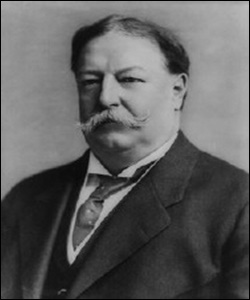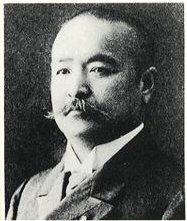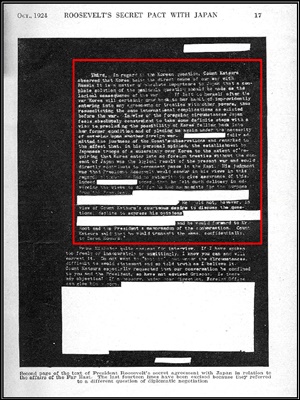“Count Katsura and Secretary Taft had a long and confidential conversation on the morning of July 27…
First, in speaking of some pro-Russians in America who would have the public believe that the victory of Japan would be a certain prelude to her aggression in the direction of the Philippine Islands, Secretary Taft observed that Japan’s only interest in the Philippines would be, in his opinion, to have those islands governed by a strong and friendly nation like the United States…Count Katsura confirmed in the strongest terms the correctness of his views on the point and positively stated that Japan does not harbor any aggressive designs whatever on the Philippines…
Second, Count Katsura observed that the maintenance of general peace in the extreme East forms the fundamental principle of Japan’s international policy. Such being the case,…the best and in fact the only means for accomplishing the above object would be to form good understanding between the governments of Japan, the United States and Great Britain…
Third, in regard to the Korean Question, Count Katsura observed that Korea being the direct cause of our war with Russia, “it is a matter of absolute importance to Japan that a complete solution of the peninsula question should be made as a logical consequence of the war. If left to herself after the war, Korea will certainly draw back to her habit of improvidently entering into any agreements or treaties with other powers, thus resuscitating the same international complications as existed before the war. In view of the foregoing circumstances, Japan feels absolutely constrained to take some definite step with a view to precluding the possibility of Korea falling into her former condition and of placing us again under the necessity of entering upon another foreign war…” Secretary Taft fully admitted the justness of the Count’s observations and remarked to the effect that, in his personal opinion, the establishment by Japanese troops of a suzerainty over Korea to the extent of requiring Korea to enter into no foreign treaties without the consent of Japan was a logical result of the present war and would directly contribute to permanent peace in the East. His judgment was that President Roosevelt would concur in his views in this regard, although he had no authority to give assurance of this…”
President Roosevelt concurred with Taft’s understanding in a telegram on July 31 1905.
“Your conversation with Count Katsura absolutely correct in every respect. Wish you would state to Katsura that I confirm every word you have said…”
When one reads the text of The American-Korean Treaty of Friendship it’s clear that both the Koreans and the Americans have different interpretations of what obligations the Roosevelt administration was subject to.
The area of contention in this treaty seems to be how both the Koreans and Americans interpret Article I. The introduction and the relevant text read as follows:
There shall be perpetual peace and friendship between the President of the United States and the King of Chosen and the citizens and subjects of their respective Governments. If other Powers deal unjustly or oppressively with either Government, the other will exert their good offices, on being informed of the case, to bring about an amicable arrangement, thus showing their friendly feelings…..”
A clear violation of Article I was America’s refusal to “exert good offices” (any diplomatic relations) with Korea in 1905 when Chosun official requested aid from the Roosevelt Administration after the coerced Japan-Korea Protocol was forcefully enacted.
Additionally the Americans not only failed to “exert their good offices” they refused to honor the 1882 Treaty of Peace by not offering to bring about any amicable agreement to Chosun assertions that the Japan Korea Protectorate Treaty was “signed under duress” as stated by King Kojong. Instead, America washed their hands clean of the “Korea problem” in exchange for a free hand for American interests in the Philippines.
The gradual manner in which Korea was slowly annexed can lead us to the wrong conclusion that this was a wilful, peaceful process. However as the documents show Korea having been abandoned by her allies was left without option but to enter into unfair coerced “treaties” with Japan under duress.




